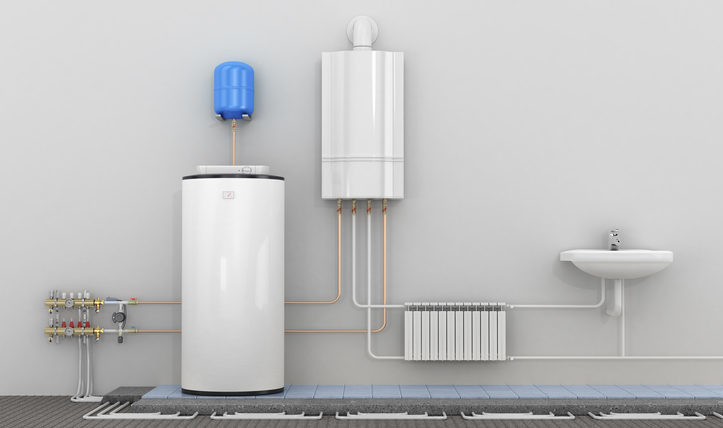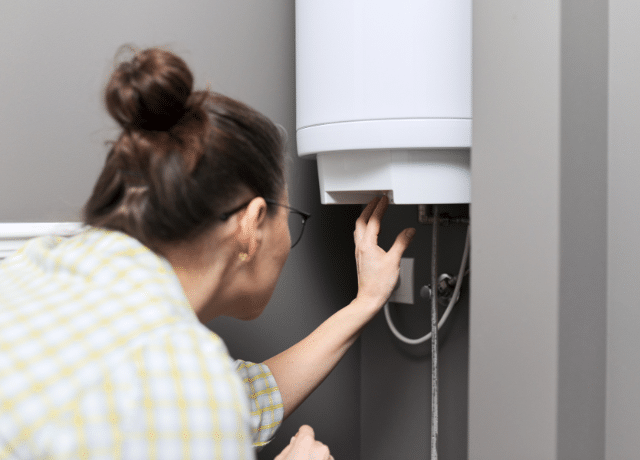How do you feel in relation to Pros and Cons of Tankless Water Heater?

In a globe where comfort and efficiency reign supreme, it's not a surprise that homeowners are frequently in search of smarter ways to handle their home's energy intake and convenience. One technology that has actually progressively acquired popularity is the tankless hot water heater. Yet just what makes these systems stand out from the conventional tank-based versions most of us grew up with? Allow's dive in and check out the advantages of tankless water heaters, assisting you choose if it's time to make the switch in your home.
Introduction
Picture this: you enter the shower after a lengthy day, anticipating a soothing waterfall of hot water, just to be welcomed by icy beads because the last person utilized all of it up. Noise acquainted? Conventional water heaters keep a fixed amount of warm water, indicating you go to the grace of that storage tank's supply. Tankless systems, on the other hand, heat water as needed. Say goodbye to going out mid-shower, no more fumbling with timetables just to ensure warm water is available.
Understanding Tankless Water Heaters
What Are Tankless Water Heaters?
Tankless water heaters, in some cases referred to as on-demand or immediate hot water heater, give warm water just as it's needed. Rather than saving gallons of pre-heated water, these devices kick right into activity the minute you switch on the tap. Water goes through a warm exchanger, heating up in real-time, meaning you get a continuous circulation of warm water without the need for a large container sitting lazily by.
Just how Do They Vary from Typical Equipments?
Conventional heating units hold a tank of hot water, using power to maintain that tank at a constant temperature level. Tankless devices remove the standing supply, lowering wasted energy and the cumbersome footprint of a large cylinder. Essentially, you're upgrading from a "stockpile" way of thinking to a "made-to-order" strategy.
Typical Sorts Of Tankless Units
Tankless water heaters usually come in two selections: gas and electrical. Gas versions tend to provide greater flow prices, suitable for larger houses, while electric designs often serve smaller sized homes and are generally easier to install. Additionally, some systems are developed for point-of-use (serving one fixture) while others can take care of the whole home's warm water demands.
Key Benefits of Tankless Water Heaters
1. Limitless Hot Water Supply
Ever needed to set up showers so everyone gets their fair share of hot water? With tankless, that ends up being a distant memory. As long as the heating system's circulation ability isn't gone beyond, you can take back-to-back showers without developing into a popsicle.
2. Energy Effectiveness and Price Savings
Say goodbye to heating up a giant storage tank's well worth of water and maintaining it toasty all the time. Tankless heating units minimize standby energy losses, which can reduce utility expenses. While the initial expense might be higher, the lasting financial savings typically warrant the financial investment.
3. Space-Saving Style
If your home is short on storage, getting rid of the large tank liberates useful area. Tankless devices are compact and can typically be mounted on walls, concealed in corners, or mounted in tight utility closets without gobbling up the entire area.
4. Longer Life-span
A well-kept tankless water heater can outlast its tank-based cousin. Typical containers might last 10-15 years, while tankless versions can keep chugging along for two decades or even more, making them a strong financial investment gradually.
5. Improved Water High Quality
Storing water in a container can often bring about sediment buildup or a slightly "off" preference. With tankless systems, fresh water is heated up instantly, reducing the chances of sediment accumulation and possibly using cleaner-tasting water.
Considerations Prior To Changing
Though the benefits are compelling, it's smart to consider a few elements before fully dedicating.
Initial Financial Investment Prices
Tankless heaters generally feature a greater ahead of time cost. In between the system itself and potential installation alterations, the preliminary expense might offer you sticker label shock. However bear in mind to view it as a long-term investment.
Installation Requirements
Relying on your home's infrastructure, you could need extra electric capability or gas line upgrades. Ensure you understand the installation requirements and seek advice from a specialist to stay clear of shocks.
Evaluating Your Home's Water Usage Patterns
If your family all at once makes use of numerous components with high warm water need, ensure the system's flow rate satisfies your requirements. Recognizing your use patterns aids you choose the ideal size and type of tankless heater.
Upkeep and Treatment Tips
Tankless systems are fairly reduced maintenance, yet they aren't set-it-and-forget-it home appliances.
Routine Cleansing and Descaling
Hard water minerals can develop in the warmth exchanger, influencing effectiveness. Routine descaling (typically advised each year) maintains the unit performing at peak performance.
Yearly Professional Assessments
A yearly checkup from a professional makes certain minor problems are captured early. They'll evaluate the system's performance, try to find leakages, and help preserve optimum efficiency.
Making Sure Appropriate Air Flow
For gas designs, proper ventilation is important to securely get rid of exhaust gases. Make certain venting systems are tidy and properly installed to avoid any potential security risks.
Contrasting Different Brands and Versions
Not all tankless hot water heater are produced equivalent.
Investigating Trusted Makers
Look for reputable brand names with a history of generating high quality units. A reliable maker often provides much better client assistance and longer warranties.
Reading Evaluations and User Feedback
Individual reviews and comments from next-door neighbors or good friends who have gone tankless can supply important understandings. Occasionally, real-life experiences can be more informing than advertising and marketing pamphlets.
Installation: DIY or Professional?
While some property owners delight in dealing with projects themselves, tankless installation may not be the very best time to break out the tool kit.
Pros and Cons of DIY Installment
A do it yourself mount could conserve cash, yet it features risks. Incorrect installation can cause inefficiency or safety and security worries. If you're handy and have experience, it could be possible-- but proceed with caution.
When to Call a Specialist Plumber
For a lot of, calling a professional makes certain whatever's done appropriately. A professional plumbing professional understands regional codes, sizing requirements, and airing vent specifications, reducing the risk of accidents.
Maximizing Effectiveness
You have actually invested in a tankless system-- now maximize its efficiency.
Ideal Temperature Level Setups
The majority of people establish their units between 120-140 F. Adjusting the temperature can boost convenience and financial savings. Experiment to find a wonderful spot that doesn't squander power.
Coupling With Low-Flow Fixtures
Intend to extend your system's capacities? Think about installing low-flow showerheads and taps. They decrease water use, permitting your tankless system to provide a constant stream of hot water without stressing.
Environmental Influence
Tankless water heaters align with greener living goals.
Reduced Carbon Footprint
By utilizing less power and only heating water as needed, tankless systems can reduce your home's carbon impact, decreasing your environmental impact.
Preserving Natural Resources
Much less power usage and less wasted hot water translate right into fewer natural deposits being made use of, an ecological win-win.
That Benefits Many from Tankless Heaters?
The appeal of tankless heating units is that they can match a selection of households.
Big Households vs. Single Owners
Large households may enjoy the endless hot water supply, while solitary occupants appreciate the power financial savings from not heating a whole tank for simply someone's morning shower.
House Owners with Limited Room
If your home is short on square video, shedding the large storage tank maximizes space for other essentials-- or maybe simply a lot more breathing space.
Eco-Conscious Consumers
Going tankless aligns with eco-friendly worths, guaranteeing you're not losing power or sources.
Future Patterns in Tankless Water Heaters
The world of home appliances is ever-evolving, and tankless hot water heater are no exception.
Smart Home Integration
Envision adjusting your hot water heater's temperature level using an application or obtaining upkeep alerts on your phone. As wise home tech advancements, we'll see even more connection and comfort.
Developments in Technology
R&D is regularly boosting warmth exchangers, making units much more effective and sturdy. Future designs may be even quieter, much more small, and much better fit for differing environments.
Conclusion
Choosing a tankless water heater is greater than simply upgrading your home's hot water system; it's buying long-lasting convenience, power effectiveness, and a greener way of living. By considering your household's water use, bearing in mind installation needs, and committing to routine upkeep, you can delight in a constant stream of warm water without the luggage of a cumbersome container. As modern technology evolves, you can eagerly anticipate also smarter, more efficient tankless solutions that not just make your life much easier but also profit the world.
Why You Should Consider a Tankless Water Heater for Your Home
Energy Efficiency and Cost Savings
Tankless water heaters, also known as on-demand water heaters, heat water only when needed. This means they don't waste energy keeping a tank of water hot constantly. This efficiency translates into substantial cost savings on your monthly energy bills.
Endless Hot Water Supply
One of the significant advantages of tankless water heaters is their ability to provide a continuous supply of hot water. Traditional tank water heaters have a limited capacity and can run out of hot water, especially during peak usage times. In contrast, tankless water heaters can provide an endless stream of hot water, making them ideal for larger families or homes with high water usage.
Space-Saving Design
Tankless water heaters are compact and take up significantly less space compared to traditional tank heaters. They can be installed on walls, under cabinets, or even outside, freeing up valuable space in your home. This makes tankless water heaters a great option for smaller homes or properties with limited space for a traditional water heater.
Longer Lifespan and Lower Maintenance
Tankless water heaters typically have a longer lifespan compared to traditional tank heaters. They can last up to 20 years or more with proper maintenance. Additionally, tankless systems are designed with replaceable parts, which can extend their lifespan further and reduce long-term maintenance costs.
Environmentally Friendly
Reducing energy consumption not only saves you money but also benefits the environment. Tankless water heaters contribute to a smaller carbon footprint by using less energy to heat water. Their energy efficiency and ability to minimize standby heat loss make them an eco-friendly choice for environmentally conscious homeowners.
Customized Temperature Control
Tankless water heaters offer precise temperature control, allowing you to set the desired temperature to meet your specific needs. This level of customization ensures you always have water at the perfect temperature for your comfort and usage requirements.
https://beantownservices.com/blog/consider-tankless-water-heater-for-your-home

We hope you liked our section about Pros and Cons of Tankless Water Heater. Thank you so much for taking the time to browse our content. Sharing is good. Helping others is fun. Thank you so much for your time spent reading it.
Request Service